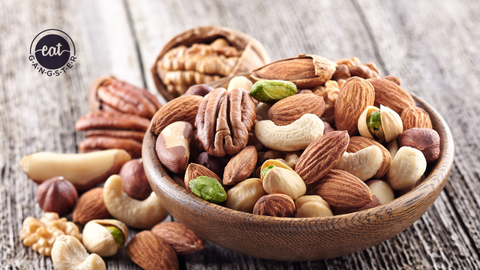While gluten-free grains like rice, corn, quinoa, and oats are often considered safe for those with gluten sensitivities, they are generally not allowed on the Autoimmune Protocol (AIP) diet. The reasoning behind this restriction stems from the broader goal of healing the gut and reducing immune system triggers.
1. Potential for Gut Irritation
Even though gluten-free grains don’t contain gluten, they still contain compounds that can irritate the gut lining. Grains, including rice and corn, contain substances like lectins, phytic acid, and saponins, which can disrupt the digestive system, especially for individuals with autoimmune conditions.
- Lectins: Proteins found in many grains that can bind to the gut lining, potentially causing inflammation and contributing to leaky gut syndrome, a condition associated with autoimmune flare-ups.
- Phytic Acid: Can reduce the absorption of key minerals, including calcium, magnesium, and iron, which are vital for immune function.
2. High Glycemic Index
Some gluten-free grains, particularly rice and corn, are high on the glycemic index (GI). Consuming foods with a high GI can cause spikes in blood sugar and insulin levels, leading to inflammation and contributing to the dysregulation of the immune system. For individuals with autoimmune disorders, maintaining stable blood sugar is critical, as fluctuations can exacerbate symptoms and trigger flare-ups.
3. Nutrient Imbalance
Though gluten-free grains like rice and corn provide essential nutrients such as carbohydrates, fiber, and small amounts of vitamins and minerals, they lack the full spectrum of nutrients needed for optimal health. Over-reliance on these grains can lead to nutrient imbalances, as they are less nutrient-dense compared to vegetables, meats, and other AIP-approved foods.
The Value of Gluten-Free Grains
Gluten-free grains, including rice and corn, do offer some benefits. They are:
- Carbohydrate sources: Providing quick energy, especially important for active individuals or those with higher energy needs.
- Fiber: Both rice and corn contain fiber, which supports digestion and helps stabilize blood sugar levels.
- Micronutrients: They provide small amounts of essential vitamins and minerals like B vitamins (especially folate) and magnesium.
Detriments to Eating Gluten-Free Grains
However, on the AIP diet, the drawbacks often outweigh the benefits for most:
- Gut health concerns: The lectins, phytic acid, and saponins found in these grains can aggravate leaky gut and inflammation.
- Blood sugar spikes: High-GI grains can negatively impact blood sugar regulation, which can trigger autoimmune flare-ups.
- Reduced nutrient absorption: Phytates bind to important minerals, limiting their absorption and potentially leading to deficiencies over time.
AIP-Friendly Grain Substitutes
If you’re looking for substitutes that fit within the AIP framework, there are several options that provide essential nutrients without the drawbacks of grains:
- Sweet Potatoes: High in fiber, vitamin A, and complex carbohydrates, sweet potatoes offer a satisfying substitute for grains and are great for gut health.
- Butternut Squash: Rich in vitamins and antioxidants, this vegetable can be roasted, mashed, or pureed to mimic the texture of grains.
- Cauliflower Rice: A low-carb, high-fiber alternative to rice, cauliflower is a great substitute that is gentle on the digestive system.
- Plantain: Similar to bananas, plantains are nutrient-dense and can be used to make “flours” or simply fried or boiled as a starch alternative.
- Zucchini: When shredded, zucchini can be used as a grain substitute in many recipes, providing vitamins and minerals with a mild taste.
We know, as well as anyone that removing grains from your diet is very difficult. That’s actually why we created our company! We have a variety of baking mixes that are all free of not only grains and gluten, but also dairy, nuts, eggs, soy, seeds, and more. Here’s a list of some of our favorite products that are great substitutes when you are removing grains from your diet:



